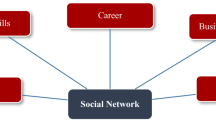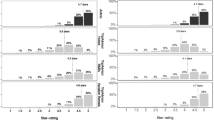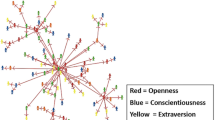Abstract
With the quick growth of sharing economy, service sharing becomes a popular phenomenon in daily lives. However, some service providers give exaggerated information about their services on the Peer-to-Peer (P2P) service sharing platforms to get more profits. How to identify a reliable service provider becomes a difficult challenge for users. In this paper, we propose a trustworthy group trust metric for P2P service sharing (TMPSS) economy based on personal social network (PSN) of users. Deriving from Advogato group trust metric, it considers factors such as social circle similarity, preference similarity, interaction degree, ranks the reliable nodes in a target user’s PSN, outputs an ordered set of reliable nodes, and prevents unreliable nodes from access PSN of honest users. Experimental results show that TMPSS has advantages over existing representative methods because it finds more reliable nodes, and counts against malicious nodes’ attacks more effectively, and it is suitable for mobile transaction circumstances.
Similar content being viewed by others
References
Puschmann T, Alt R. Sharing economy[J]. Business & Information Systems Engineering, 2016, 58(1): 93–99.
Shore S H. For better, for worse: Intra-household risk-sharing over the business cycle[J]. Review of Economics & Statistics, 2010, 92(3): 536–548.
Hamari J, Sjöklint M, Ukkonen A. The sharing economy: Why people participate in collaborative consumption[J]. Journal of the Association for Information Science and Technology, 2016, 67(9): 2047–2059.
Hasan R, Birgach M. Critical success factors behind the sustainability of the sharing economy[C]//IEEE, International Conference on Software Engineering Research, Management and Applications. Washington D C: IEEE, 2016: 287–293.
Hawlitschek F, Lippert F. Whom to trust? Assessing the role of profile pictures on sharing economy platforms[C]//International Conference on Group Decision & Negotiation. Washington D C: IEEE, 2015: 306–323.
Dillahunt T, Lampinen A, O’Neill J, et al. Does the sharing economy do any good?[C]//ACM Conference on Computer Supported Cooperative Work and Social Computing Companion. New York: ACM, 2016: 197–200.
Ert E, Fleischer A, Magen N. Trust and reputation in the sharing economy: the role of personal photos in Airbnb[J]. Tourism Management, 2016, 55(1): 62–73.
Tahta U E, Sen S, Can A B. GenTrust: A genetic trust management model for peer-to-peer systems[J]. Applied Soft Computing, 2015, 34: 693–704.
Jiang L, Xu J, Zhang K, et al. A new evidential trust model for open distributed systems[J]. Expert Systems with Applications, 2012, 39(3): 3772–3782.
Lax G, Sarné G M L. CellTrust: a reputation model for C2C commerce[J]. Electronic Commerce Research, 2008, 8(4): 193–216.
Acampora G, Alghazzawi D, Hagras H, et al. An interval type-2 fuzzy logic based framework for reputation management in peer-to-peer e-commerce[J]. Information Sciences, 2016, 333(C): 88–107.
Zhang J, Cohen R. A framework for trust modeling in multiagent electronic marketplaces with buying advisors to consider varying seller behavior and the limiting of seller bids[J]. ACM Transactions on Intelligent Systems & Technology, 2013, 4(2): 1–22.
Koll D, Li J, Fu X. SOUP: An online social network by the people, for the people[C]//ACM Conference on SIGCOMM. New York: ACM, 2015: 143–144.
Yan S R, Zheng X L, Wang Y, et al. A graph-based comprehensive reputation model[J]. Information Sciences, 2015, 318(C): 51–72.
Ruan Y, Durresi A. A survey of trust management systems for online social communities—Trust modeling, trust inference and attacks[J]. Knowledge-Based Systems, 2016, 106(2): 150–163.
Yu H, Shen Z, Leung C, et al. A survey of multi-agent trust management systems[J]. IEEE Access, 2013, 1(1): 35–50.
Zolfaghar K, Aghaie A. A syntactical approach for interpersonal trust prediction in social web applications: Combining contextual and structural data[J]. Knowledge-Based Systems, 2012, 26(1): 93–102.
Hur J, Guo M, Park Y, et al. Reputation-Based collusion detection with majority of colluders[J]. Ieice Transactions on Information & Systems, 2016, E99. D(7): 1822–1835.
Al-Oufi S, Kim H N, El Saddik A. A group trust metric for identifying people of trust in online social networks[J]. Expert Systems with Applications, 2012, 39(18): 13173–13181.
Ford L R, Fulkerson D R. Maximal Flow Through a Network: Classic Papers in Combinatorics[M]. Boston: Birkhäuser, 2009: 243–248.
Granovetter M. The strength of weak ties: A network theory revisited[J]. Sociological Theory, 1983, 1(1): 201–233.
Gilbert T E, Karahalios K. Predicting tie strength with social media[C]//International Conference on Human Factors in Computing Systems. New York: ACM, 2009: 211–220.
Kleinberg J. The small-world phenomenon: An algorithmic perspective[J]. Proceedings of ACM Symposium on Theory of Computing, 2010, 406(2): 163–170.
Tong H, Faloutsos C, Pan J Y. Fast random walk with restart and its applications[C]//International Conference on Data Mining. Washington D C: IEEE, 2006: 613–622.
Author information
Authors and Affiliations
Corresponding author
Additional information
Foundation item: Supported by the National Social Science Foundation of China(17BGL201)
Rights and permissions
About this article
Cite this article
Zhu, W. A Trustworthy Group Identifying Trust Metric for P2P Service Sharing Economy Based on Personal Social Network of Users. Wuhan Univ. J. Nat. Sci. 23, 139–149 (2018). https://doi.org/10.1007/s11859-018-1304-3
Received:
Published:
Issue Date:
DOI: https://doi.org/10.1007/s11859-018-1304-3




